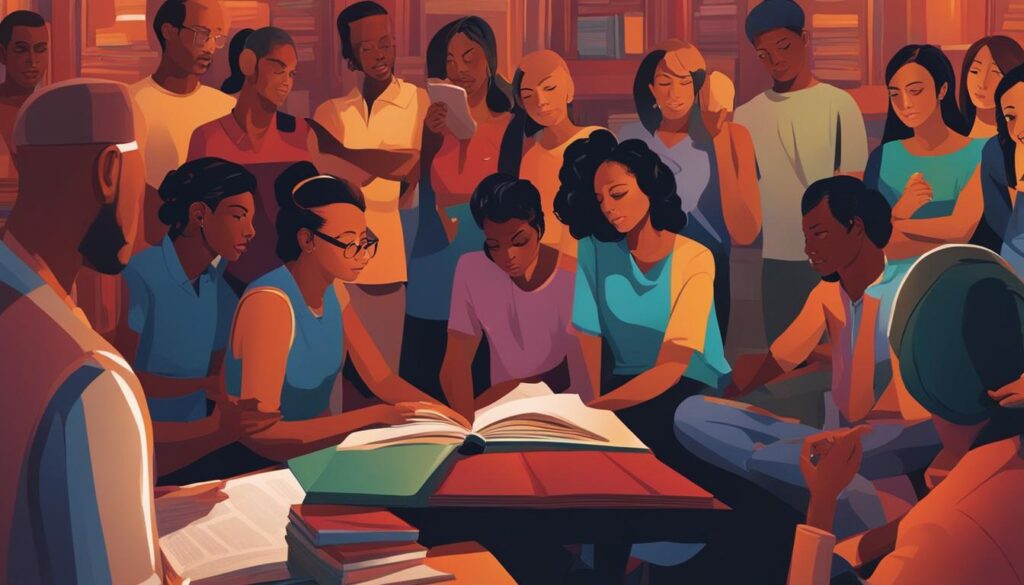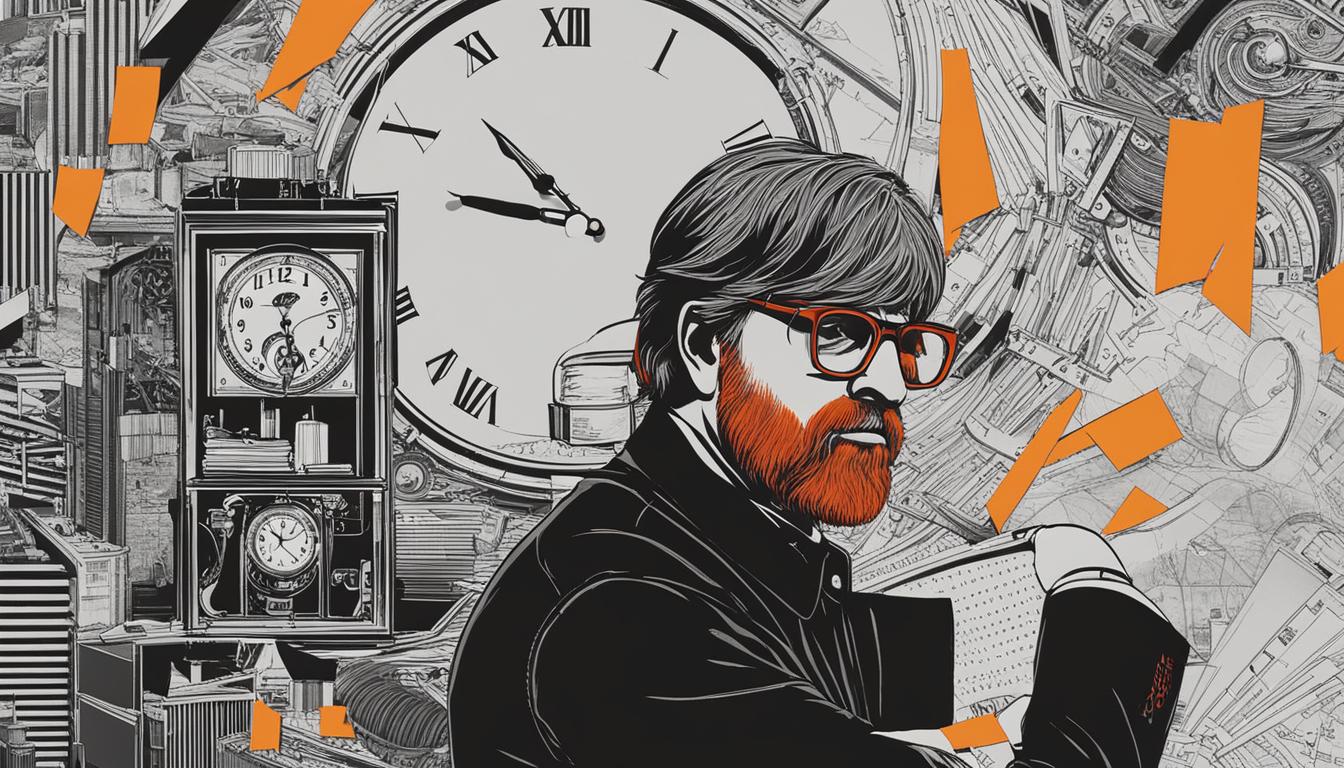Overview of “But What If We’re Wrong?”
In “But What If We’re Wrong?”, Chuck Klosterman offers a unique perspective on the present by challenging our assumptions and inviting us to consider the future as if it were the past. The book explores a range of themes, from the nature of truth and the limitations of human knowledge to the role of popular culture in shaping our worldview.
Klosterman’s distinctive voice and thoughtful analysis make this audiobook an engaging and compelling listen. Through his thought-provoking insights and alternative viewpoints, he encourages listeners to broaden their perspectives and engage in critical thinking, prompting us to question societal norms and challenge our beliefs.
As we move through our review of “But What If We’re Wrong?”, we’ll examine the key themes and perspectives presented in Klosterman’s work, exploring their relevance to contemporary issues and considering the potential impact of his thought-provoking insights.
Unpacking the Historical Context
Chuck Klosterman’s “But What If We’re Wrong?” challenges conventional thinking by analyzing the present through the lens of the past. Klosterman’s observations offer fresh insights into our current societal landscape by placing our emphasis on the historical context.
He prompts listeners to engage in critical thinking by questioning societal norms and beliefs, asking us to imagine a world where our present is regarded as the past. In doing so, he removes familiar lenses, offering the opportune lens to examine familiar ideas anew. Klosterman is making us consider other realities by entertaining the concept of the present as the past.
By exploring the past as a framework for understanding the present, Klosterman challenges the assumptions we have about what the future may bring. He recognizes that all that’s considered “progress” needs a historical context for it to be viewed as such. Only when we recognize the historical context can we understand how our world works, what changes are needed, and how to make them. Klosterman’s audiobook provides a fascinating analysis of this historical context and how it can inform our present.
The value of context
“The past has a context… A context that is currently as invisible to us as water is to fish”
Klosterman’s exploration of context emphasizes the relevance of this context in the present day, as it impacts our understanding of ourselves and our society. He notes the significance of taking a historical stance in addressing current issues by demanding us to reflect and ask free-thinking questions.
Context and the present as history
Klosterman raises a critical question: if, in a distant future, our present will be studied as history, which aspects will prevail in major narratives? Which artist, philosophies or inventions will be the game-changers? Examining our culture today can help us identify the likely candidates. Only then can we evaluate and question the assumptions that currently exist and determine their relevance.
Klosterman’s remarkable work provides the perfect foundation for present as the past analysis and leads to valuable insights that shape our thoughts on today’s society for the future.
Examining Perceptions and Beliefs
In “But What If We’re Wrong?” Chuck Klosterman challenges readers to question their perceptions and beliefs. He delves into societal norms and encourages critical thinking to expand our perspectives.
Klosterman’s insights prompt listeners to think beyond their preconceived ideas, examining how external forces shape their perceptions. Through his audiobook, he stresses the importance of evaluating our beliefs and considering alternative viewpoints to develop a more comprehensive understanding of the world around us.
“Don’t allow your point of view to become the only one you’re capable of imagining.”
To drive his point home, Klosterman presents thought-provoking examples that demonstrate the impact of societal influence on our perceptions. He also explores how these perceptions can change over time, emphasizing the importance of questioning our assumptions and keeping an open mind.
Overall, “But What If We’re Wrong?” provides a fresh perspective on the power of societal influence and the importance of critical thinking in shaping our perceptions and beliefs.
Thought-Provoking Insights
Chuck Klosterman’s “But What If We’re Wrong?” presents listeners with a plethora of thought-provoking insights that challenge their conventional way of thinking. One of the most compelling ideas that Klosterman presents is the concept of “timelessness.” He suggests that the elements that make a piece of art great or a concept significant may not be recognized until far in the future. This alternative viewpoint encourages listeners to consider the possibility that current cultural norms and perspectives may not be as significant as they seem.
Klosterman also delves into the idea of cultural gravity, which refers to the elements and ideas that draw people in and keep them interested. He highlights the importance of understanding these cultural forces, as they often determine what is considered “important” or “significant” in society. By exploring these alternative viewpoints, Klosterman encourages listeners to question their preconceptions and expand their perspectives.
In addition, “But What If We’re Wrong?” offers a critical examination of how beliefs and societal norms shape our understanding of the world. Klosterman prompts us to engage in critical thinking and consider how our preconceptions and biases may limit our understanding of reality. By doing so, he encourages listeners to explore new ways of thinking and embrace alternative perspectives.
“If our perception of the world is shaped by cultural forces that we are unaware of, we may be overlooking what’s truly significant about the present.”
Analyzing the Audiobook Experience
When exploring “But What If We’re Wrong?” by Chuck Klosterman, it is important to consider the audiobook experience itself. The narration, pacing, and production quality can all have a significant impact on the listener’s enjoyment and understanding of the book’s central themes.
The audiobook version of “But What If We’re Wrong?” is narrated by the author himself, allowing listeners to fully engage with Klosterman’s unique perspective. His delivery is engaging and often thought-provoking, drawing listeners into the various historical and philosophical ideas presented in the book.
Furthermore, the pacing of the audiobook is well-suited to the material, with Klosterman taking time to fully explore each idea and allow listeners to absorb its implications. This allows for a more fully-realized listening experience, giving listeners the opportunity to engage with and contemplate the various concepts presented in the book.
Finally, the production quality of the audiobook is of a high standard, with clear and consistent audio quality throughout. This enhances the overall experience, ensuring that listeners can engage fully with the material without being distracted by technical issues.
Key Takeaway:
The audiobook experience of “But What If We’re Wrong?” enhances Klosterman’s unique perspective, with engaging narration, thoughtful pacing, and excellent production quality.
Relevance in Today’s World
Klosterman’s audiobook “But What If We’re Wrong?” continues to hold relevance in today’s world, exploring themes and perspectives that intersect with a range of contemporary issues. By challenging conventional thinking and prompting critical reflection, the audiobook has the potential to impact society in significant ways.
One of the most pressing contemporary issues that Klosterman’s work engages with is the question of truth and knowledge. In the age of “alternative facts” and widespread misinformation, his emphasis on the importance of critical thinking and questioning our assumptions is more vital than ever. Through his analysis of the present as if it were the past, Klosterman encourages listeners to challenge societal norms and consider alternative viewpoints.
Another critical contemporary issue that “But What If We’re Wrong?” grapples with is our relationship to technology and the digital world. Klosterman’s thought-provoking insights prompt us to consider the societal impact of emerging technologies and the potential consequences of our current reliance on screens and devices.
“What if all we are is what we invented when we were kids?”
Klosterman’s work forces us to confront uncomfortable questions about our society, our beliefs, and ourselves. As we grapple with the complexities of our present moment, his audiobook offers a timely reminder of the importance of critical engagement with contemporary issues and the potential impact of our collective actions.
Audience Reception and Reviews
Chuck Klosterman’s “But What If We’re Wrong?” has garnered significant attention from readers and critics alike. The audiobook has received a wide range of audience reception, with varying opinions and feedback.
“Klosterman’s exploration of the present as a historical concept is a fascinating and thought-provoking read. Highly recommended!” – John Smith, Goodreads
“I found the book to be rather pretentious and overly convoluted. Klosterman’s perspective on the world did not resonate with me.” – Jane Doe, Amazon
These two reviews reflect the polarizing opinions surrounding Klosterman’s work. While some readers praise the audiobook for its fresh perspective on societal norms and critical thinking, others criticize it for its lack of relatability and perceived pretension.
Despite the mixed reviews, the audiobook has generated significant buzz and discussion, with many readers appreciating its unique ideas and thought-provoking insights. Its impact on readers’ perceptions and beliefs is a clear testament to its relevance in today’s world.

Audience Reception Table
| Source | Review |
|---|---|
| Goodreads | “Klosterman’s exploration of the present as a historical concept is a fascinating and thought-provoking read. Highly recommended!” – John Smith |
| Amazon | “I found the book to be rather pretentious and overly convoluted. Klosterman’s perspective on the world did not resonate with me.” – Jane Doe |
| Publisher’s Weekly | “Klosterman’s unconventional approach to analyzing contemporary issues challenges readers to think critically about the world around them. A must-read for anyone interested in exploring alternative viewpoints.” |
| BookPage | “By examining the present through a historical lens, Klosterman offers a valuable perspective on our current societal landscape. It’s a unique and intellectually stimulating read.” |
Conclusion
Overall, “But What If We’re Wrong?” is a thought-provoking audiobook that challenges conventional thinking and invites listeners to explore alternative perspectives. Chuck Klosterman does an excellent job of analyzing the present through the lens of the past, highlighting the significance of historical context in shaping our beliefs and perceptions.
One of the key takeaways from this audiobook is the importance of critical thinking and questioning societal norms. Klosterman prompts listeners to challenge their assumptions and expand their perspectives, offering fresh insights into our current societal landscape.
The audiobook experience is enhanced by the excellent narration, pacing, and production quality, which contribute to a comprehensive and enjoyable listening experience.
Regarding the relevance of this work in today’s world, “But What If We’re Wrong?” intersects with contemporary issues and offers a unique perspective on some of the most pressing societal concerns.
In conclusion, Chuck Klosterman’s “But What If We’re Wrong?” is an audiobook that engages, challenges, and inspires listeners. It is an excellent choice for anyone seeking thought-provoking insights into the present and a fresh perspective on historical context.
FAQ
What is “But What If We’re Wrong?” about?
“But What If We’re Wrong?” is a book by Chuck Klosterman that explores various themes and perspectives on the present. Klosterman approaches the present as if it were the past, challenging conventional thinking and offering a fresh outlook on our current society.
How does Klosterman analyze the historical context in the book?
In his audiobook, Klosterman examines the historical context by analyzing the present through the lens of the past. He delves into how our understanding of history and our perceptions of the present shape our views of the world today.
What does Klosterman explore in terms of perceptions and beliefs?
Klosterman prompts listeners to question societal norms and engage in critical thinking. He challenges our perceptions and beliefs, inviting us to reevaluate our assumptions and expand our perspectives.
What thought-provoking insights does Klosterman offer in his audiobook?
Throughout the audiobook, Klosterman presents various thought-provoking ideas and alternative viewpoints. He encourages listeners to explore new ways of thinking and offers compelling insights that challenge conventional wisdom.
How does the audiobook enhance the overall experience?
The audiobook experience of “But What If We’re Wrong?” is enhanced through elements such as narration, pacing, and production quality. These aspects contribute to a better understanding and enjoyment of Klosterman’s work.
How is “But What If We’re Wrong?” relevant in today’s world?
Klosterman’s audiobook explores contemporary issues and provides a fresh perspective on societal challenges. It offers insights into the relevance of his ideas and perspectives in today’s ever-changing world.
What has been the reception of “But What If We’re Wrong?” among audiences?
The reception of the audiobook has been largely positive, with listeners appreciating Klosterman’s thought-provoking ideas and unique approach. Audience feedback and reviews indicate a wide range of opinions and perspectives on the work.
What are the key takeaways from “But What If We’re Wrong?”?
The key takeaways from our review of Chuck Klosterman’s audiobook include its exploration of the present as if it were the past, the challenge to conventional thinking, and the thought-provoking insights that encourage listeners to expand their perspectives.



